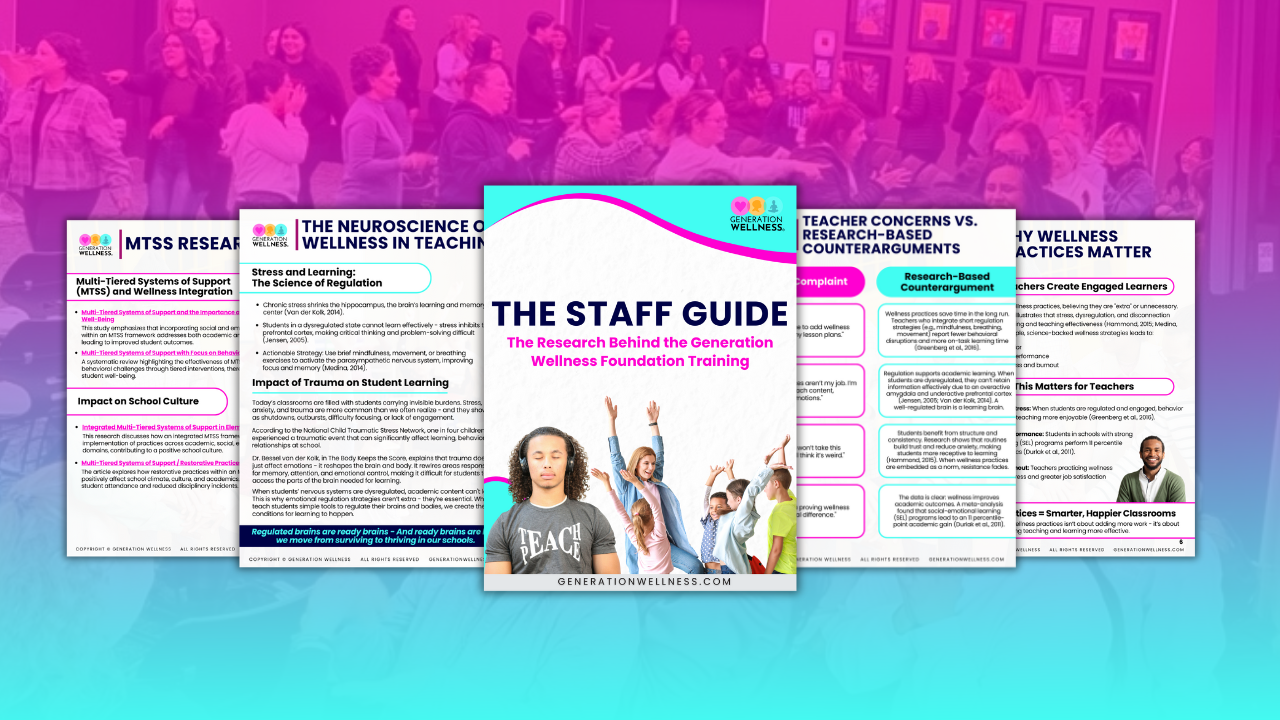Facing Resistance: How to Respond When Educators Question Wellness in Schools

As more schools embrace wellness practices, the biggest challenge often isn’t the strategy—it’s the skepticism. Educators are navigating high stress, limited time, and endless demands. When they hesitate, it’s not due to a lack of care but the weight of being overwhelmed.
This blog explores common concerns about social-emotional learning (SEL) and wellness practices, offering clear, research-backed solutions that build trust, increase engagement, and create a culture of support for both staff and students.
The Current Reality in Schools
Time Pressure and Burnout
Teachers are expected to plan, differentiate, assess, teach, and support mental health, all at once. Many feel too stretched to take on anything else.
Student Mental Health Is Declining
- 1 in 5 children experiences a mental health challenge each year.
- Since the pandemic, there’s been a sharp rise in anxiety, depression, and behavioral disruptions across all grade levels.
- These struggles often show up as disengagement, outbursts, and falling behind academically.
Behavioral Disruptions Impact Learning
Classrooms without emotional regulation strategies often face more frequent behavior challenges, which interrupt instruction and take valuable time away from learning.
Common Educator Concerns And the Research-Based Reframes
Bringing wellness into your school begins with building shared understanding. This resource highlights common concerns educators face and provides research-backed ways to reframe them. Wellness is not just an add-on. It is a foundational support that helps everyone thrive.
Click here to view the Staff Guide and explore the full list of common concerns and research-backed reframes that can help shift mindsets and transform your school culture!
Why Generation Wellness Works
Unlike scripted programs that add to a teacher’s workload, Generation Wellness offers a flexible framework that fits into existing routines. It’s designed for real classrooms and real-life schedules.
Regulate
- Deep breathing
- Movement
- Brain-based calming strategies and spaces
Connect
- Partner activities
- Community circle prompts
- Whole group activities
Reflect
- End-of-day check-ins
- Gratitude and goal-setting
- Audio relaxations to end with stillness
Take Action
Resistance is natural when something feels new or uncertain. But when educators understand the why, they’re more open to the how.
Learn more about why Lyndsay Morris created Generation Wellness here.
WE'RE HERE TO SUPPORT YOU!
Questions about our online courses, online toolkits, or live trainings?







